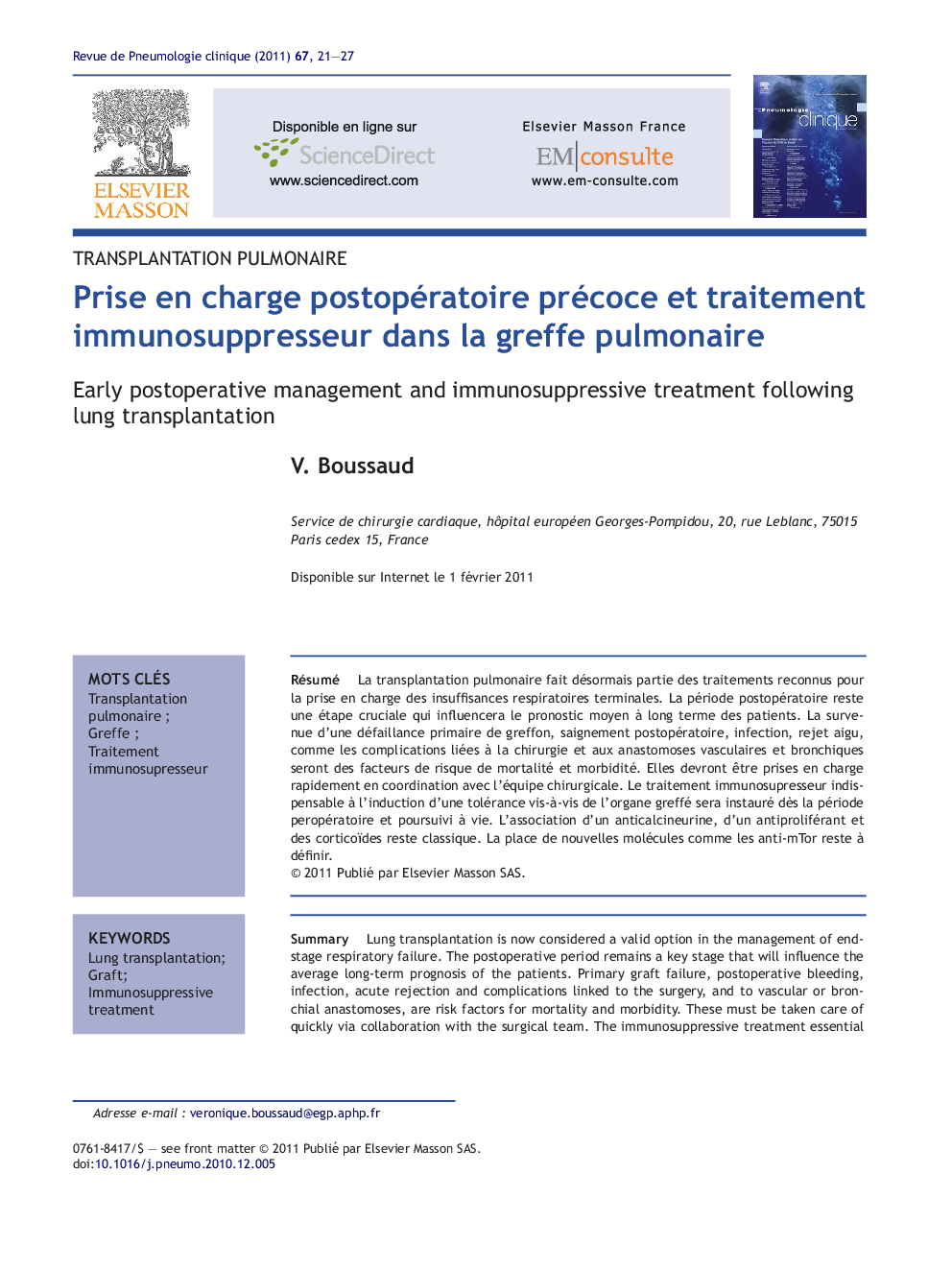| Article ID | Journal | Published Year | Pages | File Type |
|---|---|---|---|---|
| 3419826 | Revue de Pneumologie Clinique | 2010 | 7 Pages |
Abstract
Lung transplantation is now considered a valid option in the management of end-stage respiratory failure. The postoperative period remains a key stage that will influence the average long-term prognosis of the patients. Primary graft failure, postoperative bleeding, infection, acute rejection and complications linked to the surgery, and to vascular or bronchial anastomoses, are risk factors for mortality and morbidity. These must be taken care of quickly via collaboration with the surgical team. The immunosuppressive treatment essential for tolerance induction with regard to the transplanted organ will be introduced during the intraoperative period and continued for life. The combination of a calcineurin inhibitor, an antiproliferative agent and corticosteroids remains the conventional procedure. The role of new molecules as mTor inhibitors remains to be determined.
Related Topics
Health Sciences
Medicine and Dentistry
Infectious Diseases
Authors
V. Boussaud,
